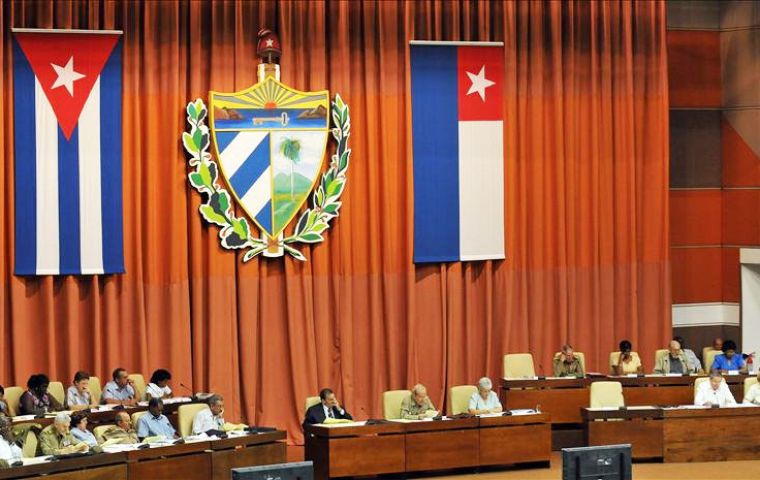MercoPress. South Atlantic News Agency
Cuba ready to implement an ambitious foreign investment with generous tax breaks
 The new law “would apply to investors a tax of 15% on taxable net profits” after which all profit could be repatriated, Juventud Rebelde reported.
The new law “would apply to investors a tax of 15% on taxable net profits” after which all profit could be repatriated, Juventud Rebelde reported. Cuba's government has released further information on a proposed foreign investment law that will cut the profits tax in half and exempt investors from paying it for eight years in an attempt to attract capital into the communist economy.
The National Assembly will meet on Saturday to approve the legislation that Cuba promises will offer investment security to foreigners and help further integrate the Castro brothers regime in the global economy.
The law would address the lengthy and sometimes murky process to approve foreign investment deals and improve investment guarantees, two major concerns of potential investors and foreign governments.
Details of the proposed law were published in the official newspaper Juventud Rebelde, which said the National Assembly was expected to approve the draft with little change.
Cuba is cut off from US investment by a comprehensive trade embargo and has failed to meet its investment targets for each of the past five years. The new investment law has been anticipated since 2011, when Cuba enacted a 300-point overhaul of its domestic economy.
President Raul Castro's government is promising legal protections to persuade foreign investors to risk their capital in the Soviet-style economy, and new incentives such as the dramatically lowered tax.
“The Cuban government has a major credibility gap to overcome with foreign investors. Investors will want evidence, not just legislation, that Cuba is prepared to allow investors to make money, employ Cubans they select and not move the goal posts when success seems to be too rewarding,” said Paul Hare, a former British ambassador to Cuba who now teaches at Boston University.
The new law ”would apply (to investors) ... a tax of 15% on taxable net profits,“ after which all profit could be repatriated, Juventud Rebelde reported.
Under the current foreign investment law, which went into effect in 1995, all tax breaks are negotiated and foreign firms pay a 30% profits tax and 20% labor tax. The labor tax was already being gradually reduced and now will be eliminated completely, according to a version of the draft law published by the Miami-based Web site Progreso Semanal.
However, foreign ventures that mine natural resources, including oil, can be subject to a higher profits tax of up to 22.5%, depending on how those ventures are negotiated with the state, according to Juventud Rebelde.
Investors will still have to hire labor through state-run companies, a major complaint, though the hiring halls will no longer operate for profit, Juventud Rebelde reported, indicating more money will flow back to workers and their wages may be easier to negotiate.
”The policy's impact will be known once Cuba starts negotiating deals with potential partners, but the new law's incentives and flexibility seem to be designed to bring in the capital needed to lift the economy and make the reforms succeed,“ said Phil Peters, who runs the Virginia-based Cuba Research Center. ”Agriculture, sugar, and renewable energy are key sectors to watch for signs of a new attitude toward foreign investment.”




Top Comments
Disclaimer & comment rules-

-

-

Read all commentsYa right...invest in Cuba, VeneCuba, Bolivia, Ecuador, and Argentina so that it can all be expropriated...
Mar 28th, 2014 - 12:08 pm 0YOU CAN NEVER TRUST COMMIE BASTARDS!
Mar 28th, 2014 - 12:34 pm 0So... they need dollars now? Is it because Venezuela has none left?
Mar 30th, 2014 - 12:56 am 0Commenting for this story is now closed.
If you have a Facebook account, become a fan and comment on our Facebook Page!